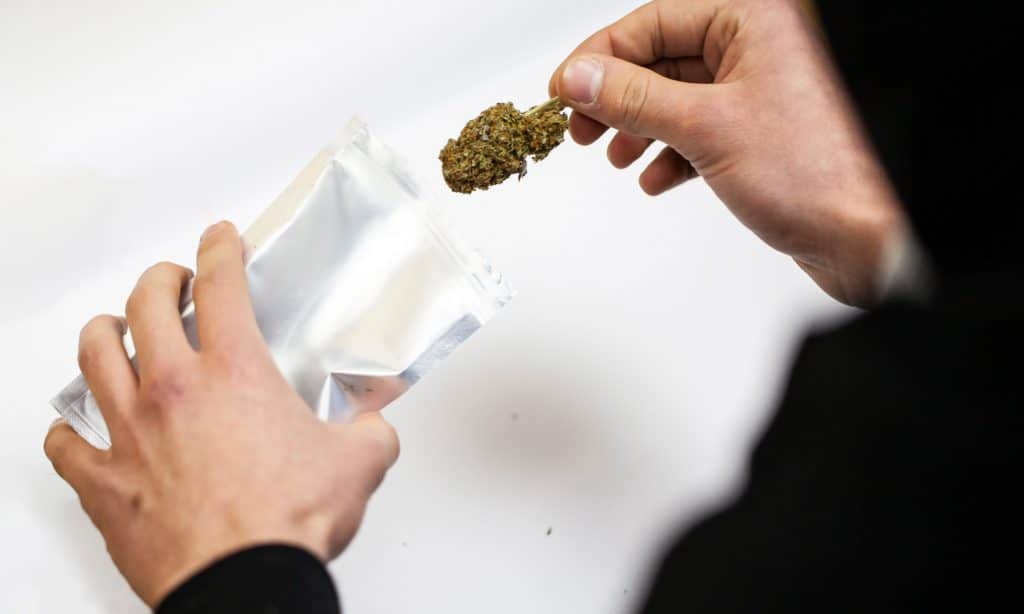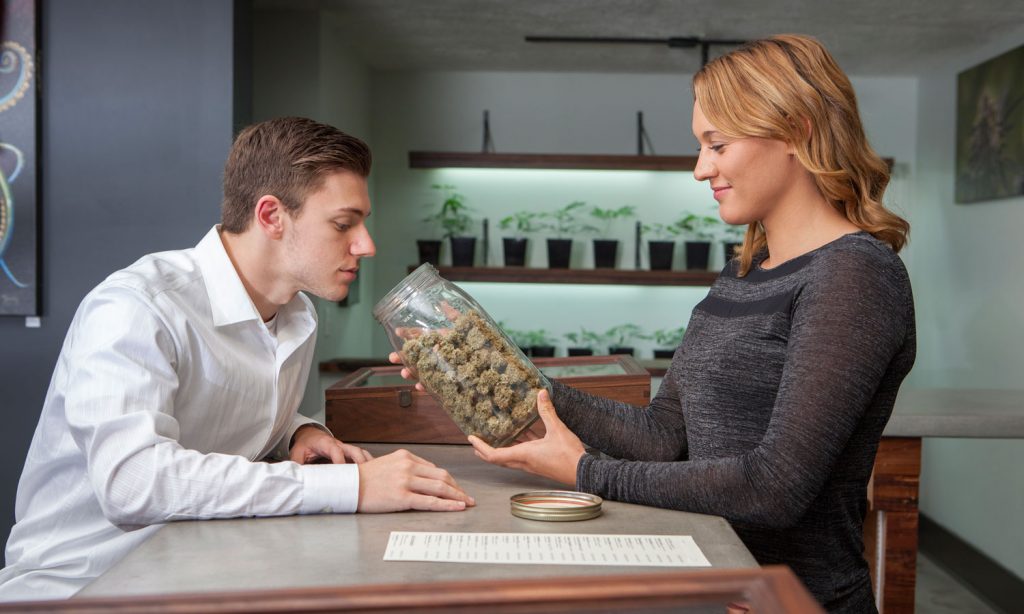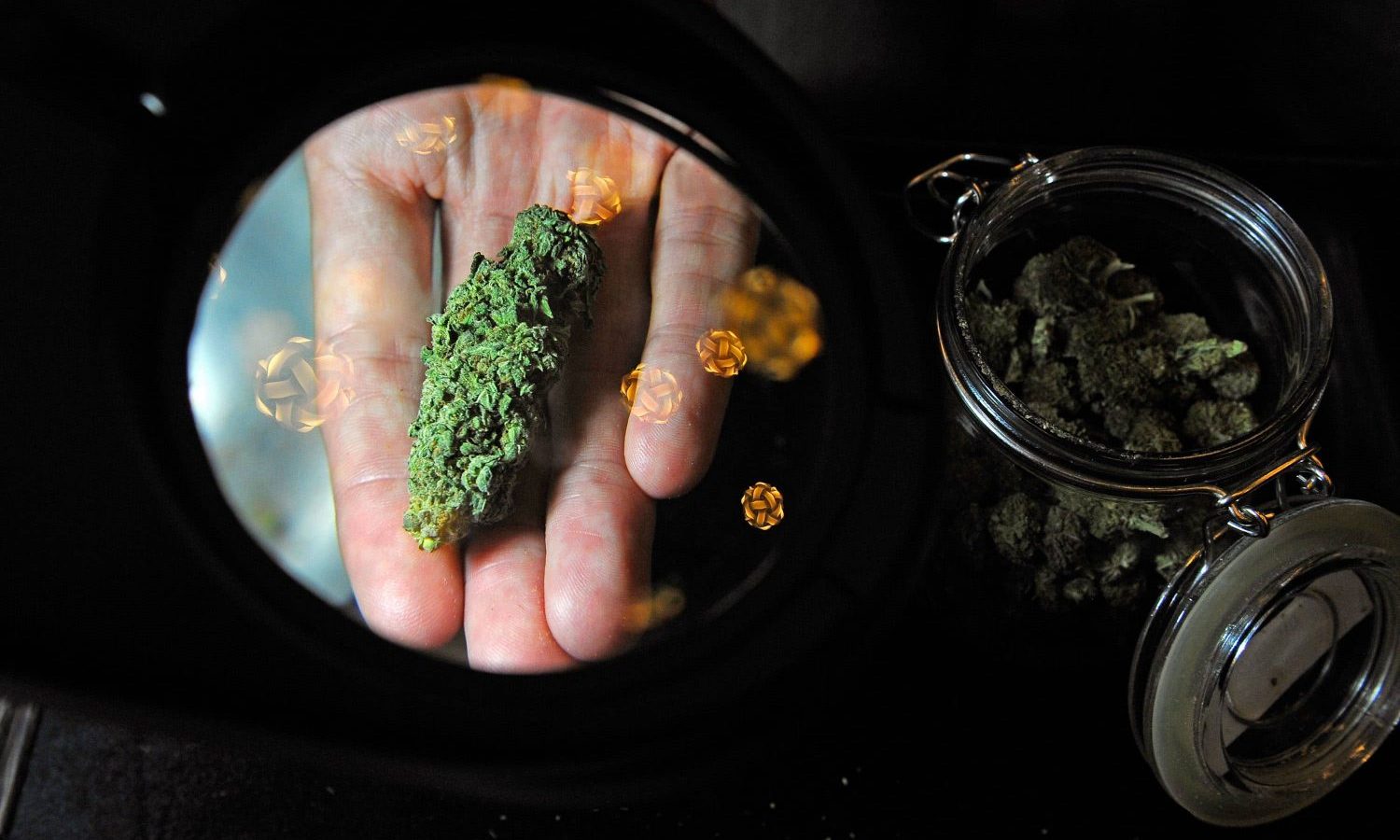You need to know more about your cannabis…about what you’re putting into your body, why that matters, and if your dispensary is really doing their due diligence with what they’re selling you.
Dispensaries selling both adult use and medical cannabis have come a long way since 2014, when both product lines were regulated to be sold in cities such as Denver.
Back then, the budtender was a guy off the streets who thought selling marijuana sounded cool and most customers were just looking for strains with the highest THC content. That’s it.
A lot has changed.
Today, you, the cannabis consumer, have so many choices for how and where you shop for cannabis. That includes the classic mom and pop dispensary around the corner, the middling limited new-and-big brand carrier, all the way up to the high-end so-called luxury shops. The 40,000 square foot Planet 13 superstore in Las Vegas, with a selection of 500-plus cannabis products sold to over 1,600 customers a day who spent on average $124 each, can make you forget what you actually came to buy.
But what are you really purchasing from your friendly neighborhood dispensary? Labels are supposed to tell you more than just the THC and CBD content split. And chances are, even as the industry continues cracking down on mislabeling, you are getting more than you bargained for—and it’s not just more or less of THC or CBD than the label says you are getting.
Studies report that cannabis can be contaminated with pesticides, heavy metals, microbial pathogens, and carcinogenic compounds during the cultivation, manufacturing, and packaging processes.
Cannabis is a phytoremediator, which means it naturally draws up heavy metals like chromium and nickel from the soil. Though most of the heavy metals it sucks up stay in the roots, there have been instances of it drawn up into the leaves of the plant.
So now you have to wonder if that cannabis you are buying was grown in soil that may have contained some of these heavy metals. Didn’t think about that? Why would you. The plant is supposed to be your friend. Did your dispensary test for the metals? Likely so. States like California have strict testing rules with a list of allowable levels of pesticides and other contaminants for which the cannabis producer provides a small sample of a dispensary’s cannabis. They also have allowable levels for heavy metals like lead, arsenic and mercury.

But how much of a product that goes for up to $500 an ounce is your dispensary willing to give up for this required testing? Maybe the tiny bit they submit wasn’t from the batch that had the bud(s) you purchased. And if a little bit of an ounce tests okay, does that also mean the whole ounce is okay? Hmmm.
Other studies have identified several fungal organisms in dispensary-produced cannabis, including Penicillium, used in the production of blue and white cheeses; Aspergillus, a common indoor/outdoor fungus; and the mysterious Fusarium, a common worldwide crop plant infection.
RELATED: Cannabis Decontamination: What Is It And Why Is It Important?
Both Penicillium and Aspergillus have been known to produce aflatoxins, which are deadly molds that move from dead and decaying vegetation onto cannabis plants.
Aspergillus is particularly devastating. It’s found in the soil as naturally occurring organic soil debris. But its spores fly around indoors and outdoors, getting onto the leaves of the growing cannabis plant and eventually, into a consumer’s lungs when smoked. Smoking the cannabis product isn’t hot enough to kill the spores. It can infect the lungs, and quickly spread to the heart, kidneys and brain.

So why not just test for and remove these dangerous contaminants out of the all of the plant before it’s okay to sell it? It’s sort of expensive and time consuming. Maybe your dispensary does that, maybe it doesn’t. But are there standards to follow?
Well, not just yet. The United States Pharmacopeia (USP) says that the standards for cannabis should include laboratory verification of an identity as cannabis, including any distinctions from hemp depending on the jurisdiction; quantitative composition of cannabinoids; and tests to help ensure minimal exposure to contaminants such as pathogenic microorganisms, toxic elemental contaminants, mycotoxins, and pesticide residues.
Will that be happening soon? Nope. The Feds won’t allow it. Hah—that old Catch 22 again.
In 2016, USP published a Stimuli article analyzing the advisability and feasibility of developing public quality standards for cannabis for medical purposes, and USP’s potential role in developing such standards.
RELATED: Why You Didn’t Get The Cannabis Strain You Think You Did
On the basis of public feedback, USP concluded that the development of quality standards for cannabis was “feasible and necessary,” but that inclusion of such standards in a legally recognized official compendium was “not advisable given the current legal status of cannabis at the U.S. federal level.”
Oh, okay. So you and your budtender probably never venture beyond the usual dialogue: “How do you want to feel?” “What terpenes do you like?” “Do you want to be buzzed for hours, or have a slow rise and slow decline in the effect?”
But you need to know more about your cannabis…about what you are putting into your body, why that matters, and if your dispensary is really doing their due diligence on all aspects of the agriculture product they are selling you.
Getting high is one thing. Getting dead is another.


